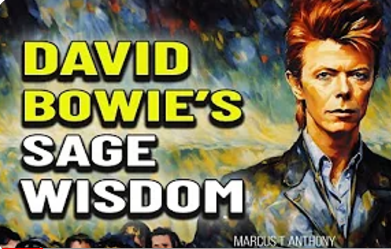In the age of social media and the internet the modern Sage has to endure a test to his awakening that Lao Zi and the Buddha would never have dreamed possible: how to stay centred while being bombarded with information. This includes the related problem of how to deal with trolls and haters on the internet.
This is particularly important for anybody who uses social media or posts comments on discussion forums of any kind on a regular basis. For me personally, I use popular sites like Facebook, LinkedIn and Twitter, and by the time you read this I will probably be experimenting with other sites. I also put my books out there on sites like Amazon, Smashwords and Scribd. Then I have my blog and websites. My articles and stories also appear of many, many other sites around the global internet.
So there’s a lot of stuff out there, and sometimes people don’t like what I say or write. Sometimes I naively write the wrong thing, or don’t fully consider that what I am writing might be interpreted in a way that was not intended. Given that I often delve into the shadow side of the human psyche, and deal with the murky word of the spiritual and psychic, you can probably appreciate why my stuff sometimes pushes people’s buttons. I also write some personal things as well, because I believe that personalising points makes them more accessible to people. The downside of that is that some people with low levels of personal responsibility will use those personal stories and details to try to defame me or get inside my head.
So I have learned a thing or two from my mistakes, and I will share these insights with you here. The good news is that the skills and attitudes that you learn and adopt as an awakened being will help you greatly in your online life. For the truth is that if you wish to remain in presence and avoid being dragged into the mind, you must apply the same standards of personal responsibility online as you do in your day to day life in the real word.
The disembodied net
The most important aspect of internet and computer usage you need to be aware of is that there is an inherent dissociation process that occurs when you shift your attention away from the world and your body, and onto a computer screen Nicholas Carr hinted at this in his book The Shallows: What the Internet is Doing to Our Brains. Carr wrote this book because he had an intuitive sense that his mind was becoming shallower as a result of the amount of time he was spending on the net. He noticed that his ability to stay focused upon anything – either online or in the physical world – was suffering along with his increased net usage. In short, he found he was being driven to distraction. Carr goes into some of the research and science which backs up the claim that our brains are changing as we spend more time online.
Of course, as a Sage who is well connected to the intuitive feedback that your body provides you moment to moment, much of the science is only confirming what you (and Carr) have already sensed.
The inner peace and silent power of the Sage emerges from her ability to shift attention away from the chattering mind (both her own and others’) and into silent presence. Needless to say, she also knows when to turn off the mobile device and stop checking her damn email. She is able to achieve relaxed mindfulness, regardless of whatever or whomever she is engaged with. Such mindfulness requires a strong connection with the body. This includes an awareness of the emotional and psychic projections that minds tend to produce; and the dramas that distract her from mindful presence. If she takes her attention away from the present moment and moves into a space where her mind attaches itself to externals (rather than simply merges with them in presence), then her presence is immediately lost.
One of the wisest things I ever heard was something spoken by mystic Leonard Jacobson. He said that when you gaze upon the vastness of the ocean, you will see the vastness within yourself reflected back to you. When you gaze upon the eternity of a mountain, you will see the eternity of yourself therein. But if you gaze upon the unconsciousness of another and become transfixed by that, you will become as lost as them.
Can you see how this point is vital when dealing with your online life? The truth is that much of what is written on social media and the internet in general is of little value. It contains little wisdom or understanding. Almost all of it is distorted by the limitations of the mind, and a great deal is simply irresponsible projection from spiritually immature individuals. If you engage this online trash at the level that it is created, you will become lost in the shadows of the mind, separated from the light. So you have to discipline yourself when it comes to the time you spend online. It is that simple.
Before I go any further, I need to make something very, very clear. It is something that you may not like to hear.
The internet is not your slave, it is your master.
At least this is true for the vast majority of human beings. It’s very likely true of you too. Most of us have given our power away to the net; to the giant computer, software and mobile IT corporations. We are dancing to their tunes, even as we are fed the lie that we are being freed by them. But my point here is not so much about conspiracies, but a far more mundane reality, something rooted in the human psyche.
Human addiction.
The reason why so many people are on the net is because they don’t want to be here. By “here”, I mean here in this world, in the present moment. In the world of the real, as Morpheus might say.
The internet provides an escape from the world, and from the emotional body. From your pain. You will never awaken if you spend most of your time online, fidgeting with gadgets, or shutting out reality via the music pumped into your head via your earphones. Just because everyone else is doing it doesn’t make it good.
If you seek awakening, you need to make time in your life for quiet presence, for connecting with your breath, with your body, with what is present with you where you are. And this needs to be the main priority of your life, not an aside or a hobby. It is true that you can – and should – be mindful while using a computer. But it is very difficult to be fully present, especially while you are online. Most online environments are designed for maximum stimulation, for maximum distraction. They are designed to capture your attention, and keep you there. In the machine.
You must make the time, many times per day, to bring your mind to presence in your body. If you do not develop the habit of presence, none of this advice will have much benefit for you.
The zombies referred to in the title of my ebook Trolls and Demons: How to Remain Awake in the Age of Online Zombies are the hordes of internet users around the world who have lost touch with their genuine nature. They have unconsciously given their power away to the machine: the modern computer. It is something of an irony that many geeks are fans of the movie The Matrix. Many see themselves as modern day Neos, hackers of the machines. While it is true that many are not fooled by the broader materialistic system in which they were raised, most do not realise that the machines have already taken possession of them. But it is not the Pentagon or KGB mainframes that have them by the goolies. It is the very instrument that sits on the desk in front of them, and the mobile devices they carry in the palms that they have given their power away to. They have become addicted to distraction. Nothing will liberate you from the mind if you do not understand this fundamental truth.
The solution is simple. Spend less time online. You will not awaken while you choose distraction over presence. You need to make the time to be here now.
This is an extract from Marcus T Anthony’s ebook of Trolls and Demons: How to Remain Awake in the Age of Online Zombies.
[facebook][retweet][twitter name=”marcustanthony1″][buzz][stumble][digg]







